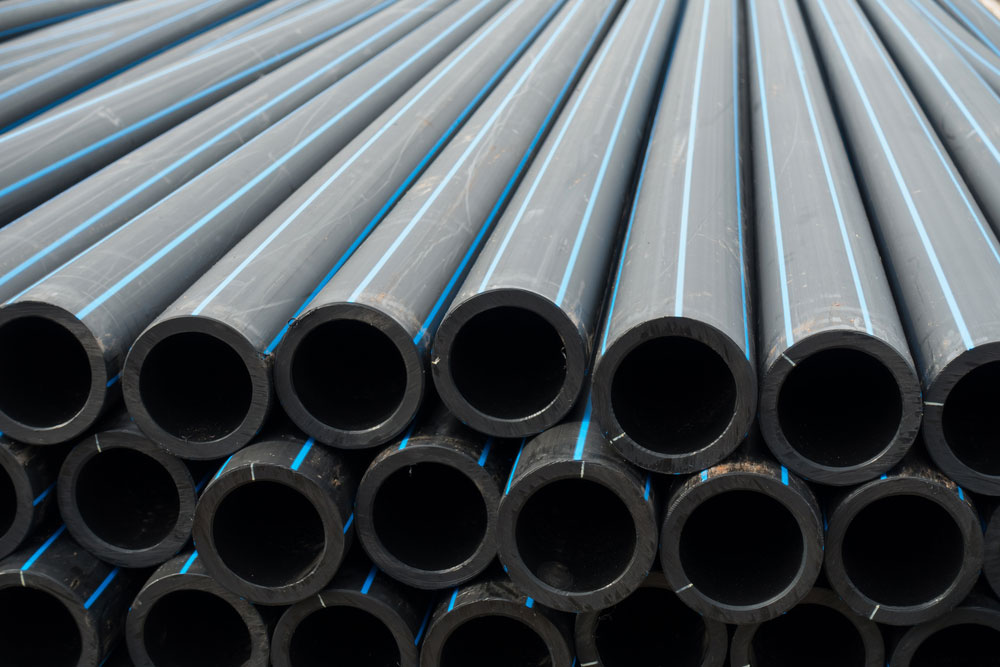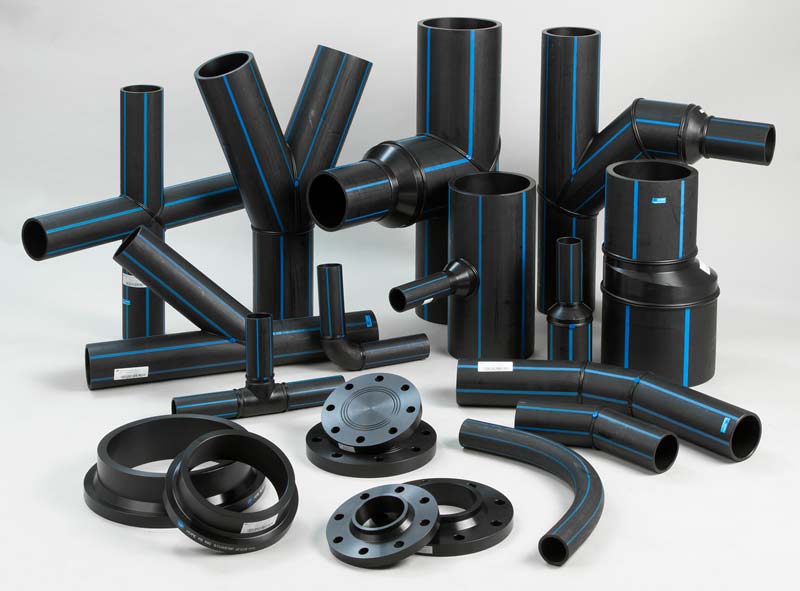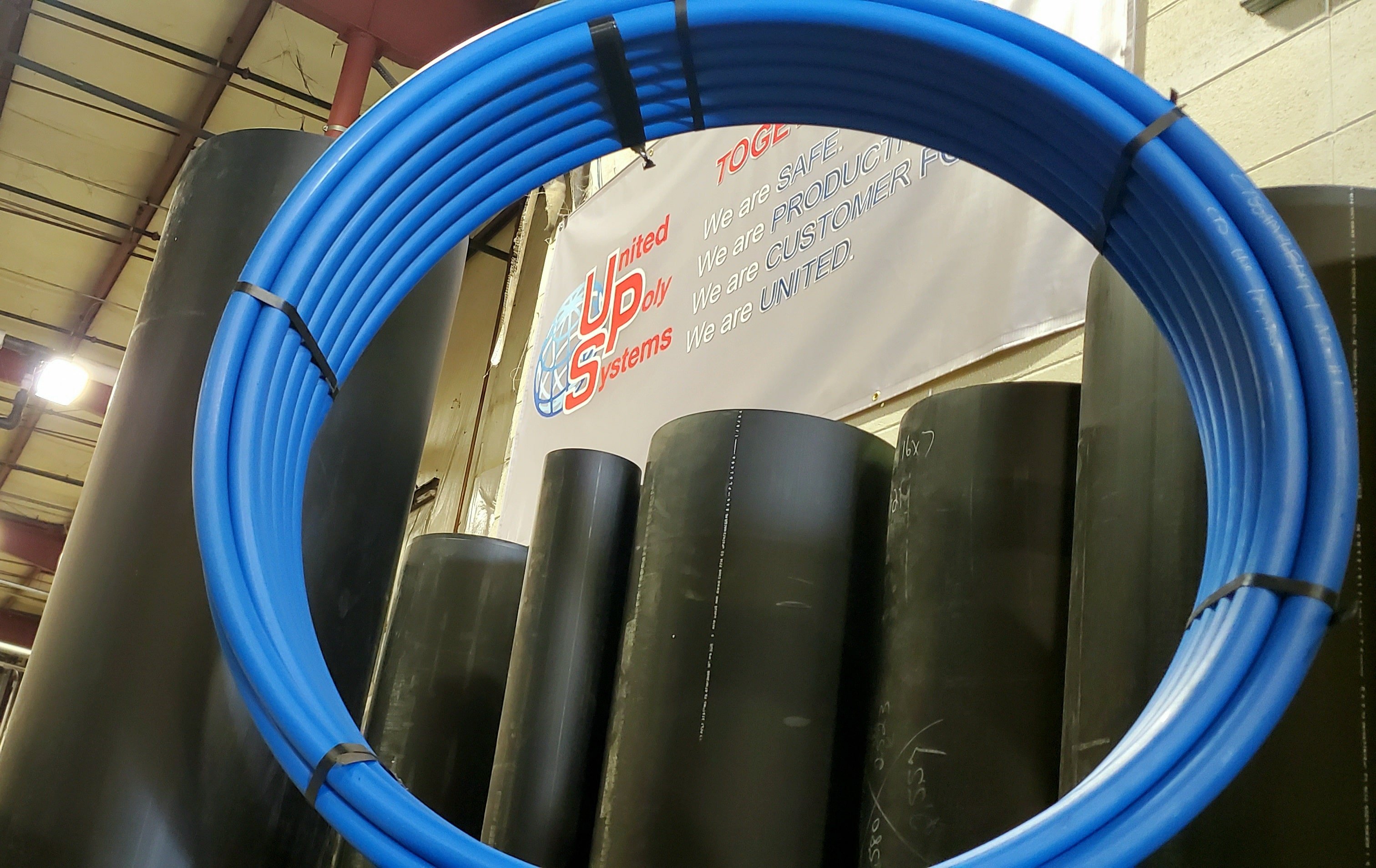Pipeline Manufacturer FAQs: materials, warranties, and testing explained
Wiki Article
Discovering the Leading Pipeline Manufacturers: Top Quality, Reliability, and Technology
The pipeline manufacturing sector stands at the junction of high quality, technology, and dependability, driven by leading firms such as Tenaris and Vallourec. These suppliers are not only devoted to generating high-performance materials but are likewise pioneering sustainable methods that resolve modern environmental issues (Pipeline Manufacturer). As we check out the criteria that define quality in pipeline remedies, it becomes obvious that the landscape is swiftly evolving. What certain innovations are arising, and just how are these advancements shaping the future of pipeline facilities? The solutions may redefine market standards in means that are not yet totally understoodLeading Manufacturers Overview
In the domain of pipeline manufacturing, a number of vital gamers emerge as leaders, each contributing significantly to the market's landscape. Firms such as Tenaris, Vallourec, and JFE Steel have developed themselves as frontrunners by continually delivering premium products that satisfy rigorous market requirements. Tenaris, renowned for its ingenious solutions, concentrates on seamless and welded pipes, providing largely to the oil and gas field. Vallourec, a French international, concentrates on the production of costs tubular solutions, stressing sustainability and advanced innovation in its manufacturing processes.Likewise, JFE Steel, a significant Japanese manufacturer, is acknowledged for its comprehensive series of steel pipelines, especially those utilized in power and framework jobs. Their dedication to r & d has actually allowed them to produce high-performance products that endure harsh ecological problems. In addition, companies like united state Steel and National Oilwell Varco have increased their market presence by diversifying their item offerings and improving operational efficiencies.
These leading makers not only control the market however additionally drive advancement within the market, establishing criteria for top quality and reliability that gamers desire accomplish. Their payments are important for fulfilling the enhancing demand for long lasting and efficient pipeline remedies worldwide.
Standards for Quality Evaluation
Quality assessment in pipeline manufacturing depends upon two critical requirements: material longevity requirements and producing procedure performance. Ensuring that materials fulfill strenuous longevity standards is necessary for the longevity and dependability of pipes. In addition, maximizing the manufacturing process can improve performance while keeping top quality, eventually affecting overall efficiency and security.Product Durability Requirements
Guaranteeing the longevity and reliability of pipeline materials is important for preserving facilities stability and operational efficiency. Product toughness standards play an essential role in assessing the quality of pipelines, dictating the performance and lifespan of the materials made use of in building and construction. Manufacturers should stick to a variety of extensive requirements, including those established by companies such as ASTM International and the American Oil Institute (API)These standards review numerous variables, including rust resistance, tensile stamina, and exhaustion efficiency. For instance, pipelines made use of in destructive environments require products that can hold up against chemical deterioration, while those subjected to high-pressure problems should show outstanding tensile strength.
Additionally, factors such as temperature variations and ecological conditions have to be thought about, as these can greatly affect material actions gradually. Manufacturers typically utilize innovative testing methods, consisting of accelerated aging tests, to mimic long-lasting wear and assurance that products surpass or meet sector standards.
Manufacturing Process Efficiency
Manufacturers' capacity to maximize manufacturing process effectiveness is important for producing high-quality pipelines that fulfill strict market requirements. Performance in producing straight affects price monitoring, production timelines, and total product integrity. To attain this, leading pipeline makers execute advanced strategies such as lean manufacturing, automation, and real-time data analytics.Lean producing principles are necessary in decreasing waste and making best use of resource utilization. By simplifying processes and getting rid of redundancies, suppliers can improve efficiency while ensuring constant quality. Automation innovations, consisting of robotics and computer mathematical control (CNC) makers, play a critical function in improving accuracy and reducing human mistake, therefore raising the integrity of the end product.
In addition, making use of real-time data analytics permits makers to check manufacturing procedures constantly, enabling them to recognize bottlenecks and make timely modifications. This proactive technique not only boosts effectiveness but likewise supports quality control methods by making certain conformity with regulatory standards.
Integrity in Pipeline Solutions
Reliability in pipeline services is vital, as it straight affects the safety and security and effectiveness of liquid transport systems. Trick aspects consist of the resilience of materials utilized, adherence to extensive screening and accreditation requirements, and the unification of ingenious material options that enhance efficiency. Comprehending these aspects is essential for makers aiming to provide reliable pipeline infrastructure.Importance of Longevity
Attaining durability in pipeline options is crucial, as it directly impacts the lasting efficiency and safety and security of framework. Sturdy pipes are important for decreasing upkeep costs and lowering the possibility of disastrous failings. This integrity is especially crucial in markets such as oil and gas, water system, and wastewater monitoring, where the effects of pipeline failing can be severe, both financially and ecologically.The products and producing processes employed by pipeline producers play a substantial function in establishing the sturdiness of the end product. Making use of top notch raw products, progressed modern technologies, and innovative style concepts assures that pipes can hold up against numerous stress factors, consisting of stress variations, temperature level variants, and corrosive environments.
The resilience of pipelines is carefully linked to their capability to resist outside aspects such as dirt movement, seismic task, and chemical direct exposures. Effective corrosion security approaches, such as coverings and cathodic protection, further improve the durability of pipes, guarding them versus degeneration gradually.
Purchasing resilient pipeline options ultimately converts to raised operational efficiency, decreased downtime, and enhanced security, attesting the crucial value of sturdiness in contemporary pipeline manufacturing.
Checking and Qualification Standards
In the domain name of pipeline solutions, extensive testing and certification standards are crucial to assure the dependability and safety and security of facilities. These standards act as criteria for examining the efficiency and resilience of pipeline products and systems, verifying they fulfill specific regulatory and market requirements.Examining processes typically incorporate various techniques, consisting of stress testing, hydrostatic analyses, and non-destructive testing strategies. These assessments are essential for recognizing potential weaknesses or issues in the materials prior to they are released in real-world applications. Furthermore, qualification by recognized companies warranties that producers stick to established standards, which cultivates count on amongst stakeholders, consisting of contractors, engineers, and end-users.
Many leading pipeline makers engage in constant surveillance and renovation of their testing protocols to adapt to progressing industry requirements and technical innovations. Conformity with criteria such as ASTM, ASME, and ISO not just enhances product integrity yet also decreases the danger of ecological cases connected with pipeline failures.
Cutting-edge Material Solutions
The growth of innovative product solutions has transformed the landscape of pipeline manufacturing, enhancing both performance and resilience. Advanced materials such as high-density polyethylene (HDPE), cross-linked polyethylene (PEX), and composite products have emerged as game-changers, using remarkable resistance to rust, temperature changes, and pressure variations. These materials not only extend the life-span of pipes however likewise decrease maintenance costs, ensuring dependable long-term efficiency.Furthermore, manufacturers are progressively adopting smart products that integrate sensors for real-time monitoring. This modern technology permits for positive maintenance, substantially enhancing reliability by spotting leakages or structural weak points before they rise right into vital failures. The combination of nanotechnology has additionally caused the growth of finishes that enhance the durability of pipelines versus abrasion and chemical exposure.
Sustainability is an additional crucial focus, with makers exploring bio-based compounds and recyclable materials that reduce ecological influence. As regulative standards proceed to progress, the focus on ingenious product options ends up being vital in meeting strict safety and ecological requirements. Ultimately, these improvements not just improve the dependability of pipeline systems yet additionally add to the total efficiency and sustainability of power transportation facilities.
Innovations in Pipeline Innovation
Advancements in pipeline innovation are changing the market by enhancing effectiveness, security, and ecological sustainability. Current advancements concentrate on wise pipeline systems that make use of sensors and IoT innovation to keep an eye on problems in actual time, enabling proactive upkeep and reducing the risk of failures. These systems can discover leaks, pressure changes, and various other abnormalities, enabling rapid reaction and reducing ecological influence.In addition, the growth of innovative products, such as composite and corrosion-resistant alloys, significantly prolongs the life expectancy and dependability of pipelines. Pipeline Manufacturer (HDPE Pipe Supplies Midland TX). These products reduce upkeep prices and improve performance in severe environments, making them perfect for gas, water, and oil transport
Automation and robotics are playing an essential role in pipeline construction and evaluation. Drones and robotic gadgets assist in surveys and assessments of hard-to-reach areas, guaranteeing comprehensive evaluations without compromising safety and security.
In addition, ingenious layouts, such as modular pipeline systems, enable better adaptability in installment and alteration, accommodating the dynamic needs of the power market. With each other, these technical advancements not just improve operational performance but additionally contribute to an extra resistant and sustainable pipeline facilities, leading the way for a greener future.
Instance Studies of Success
Across numerous sectors, effective executions of sophisticated pipeline modern technologies demonstrate significant renovations in operational efficiency and security. One remarkable case is the implementation of clever pipeline monitoring systems in the oil and gas market, where real-time information analytics have actually lowered leak discovery times by over 50%. This not just decreases environmental risks however likewise improves the total honesty of pipeline infrastructure.
Additionally, a significant manufacturer implemented robotic examination modern technologies in its pipeline maintenance operations, causing a 40% renovation in evaluation efficiency. This strategy has streamlined maintenance schedules and considerably reduced downtime.
These study highlight how prominent pipeline suppliers are leveraging sophisticated innovations to foster dependability and operational quality, ultimately establishing brand-new requirements for the sector. As these successes proceed to unfold, they lead the way for more developments in pipeline manufacturing and administration.

Ecological Sustainability Practices
Often, pipeline suppliers are prioritizing ecological sustainability practices to reduce their environmental footprint and boost the longevity of their products. This dedication is reflected in various initiatives aimed at reducing waste, saving power, and utilizing sustainable materials throughout the manufacturing procedure.
Many producers are taking on advanced technologies that decrease exhausts and power usage. For example, the integration of automated systems and energy-efficient machinery aids enhance production while decreasing reliance on nonrenewable fuel sources. Additionally, companies are progressively turning to environmentally friendly products, such as recycled steels and bioplastics, which not just lower the ecological impact but additionally advertise a round economy.
Additionally, pipeline producers are carrying out extensive lifecycle evaluations to examine the ecological effects of their items from creation to disposal. This strategy enables them to recognize possibilities for enhancement and foster responsible sourcing and waste management methods.
Cooperation with environmental companies further boosts these initiatives, as suppliers seek to align their operations with global sustainability objectives. Inevitably, these ecological sustainability techniques not just add to a healthier world yet additionally setting suppliers as responsible leaders in the market, attracting ecologically aware stakeholders and consumers alike.
Future Fads in Pipeline Manufacturing
As the need for more efficient and sustainable infrastructure grows, pipeline manufacturing is poised for significant innovations that will certainly improve the sector. Secret trends expected in the coming years consist of the assimilation of sophisticated products, such as corrosion-resistant and composite alloys, which boost sturdiness while decreasing environmental impact. Manufacturers are likewise expected to take on innovative production techniques, like additive manufacturing and automation, to enhance procedures, lower waste, and lower expenses.The increase of clever pipeline technologies, including sensors and IoT devices, will make it possible for real-time monitoring and anticipating upkeep, therefore boosting safety and operational efficiency. This digital transformation will certainly not just enhance resource monitoring yet additionally promote conformity with rigid environmental policies.
Sustainability will continue to be a main emphasis, driving manufacturers to purchase eco-friendly practices, including energy-efficient manufacturing approaches and recycling efforts. As the international emphasis on climate adjustment escalates, pipeline suppliers will certainly require to adjust by developing solutions that fulfill both economic and environmental demands.
Frequently Asked Inquiries

What Industries Mainly Make Use Of Pipeline Products From These Manufacturers?
Pipeline products are largely utilized in markets such as oil and water, wastewater and gas management, chemical processing, mining, and building and construction. These fields depend on effective, resilient, and secure transport of fluids and materials.
Exactly How Do Manufacturers Make Certain Conformity With International Pipeline Standards?
Manufacturers ensure conformity with global pipeline criteria by implementing rigorous quality control processes, conducting routine examinations, adhering to recognized regulative frameworks, and purchasing worker training to advertise recognition and understanding of safety and security and quality needs.What Is the Ordinary Life-span of Pipelines From Leading Manufacturers?
The typical life expectancy of pipes from leading makers normally varies from 30 to 100 years, relying on product, ecological conditions, and upkeep practices. American Plastics LLC HDPE Pipeline Manufacturer. Routine assessments and adherence to industry standards considerably affect long life and performanceAre There Certifications Details to Pipeline Manufacturing High Quality?
Yes, various qualifications exist for pipeline producing quality, consisting of ISO 9001 for top quality administration systems and API standards details to pipes. These certifications assure adherence to extensive safety, efficiency, and environmental criteria within the market.How Do Manufacturers Handle Pipeline Upkeep and Repairs?
Manufacturers commonly carry out a proactive Get the facts maintenance method that consists of normal assessments, keeping an eye on systems for early discovery of issues, and an organized repair work method. This method warranties pipeline stability, reduces downtime, and boosts overall functional efficiency.Quality evaluation in pipeline manufacturing pivots on two essential requirements: product resilience criteria and manufacturing procedure efficiency - Pipeline Manufacturer. Product durability requirements play a vital role in examining the top quality of pipelines, determining the efficiency and lifespan of the materials utilized in building and construction. The materials and producing procedures used by pipeline producers play a considerable duty in determining the sturdiness of the last item. The ordinary lifespan of pipelines from leading makers commonly varies from 30 to 100 years, depending on material, ecological problems, and upkeep techniques. Yes, various certifications exist for pipeline producing high quality, consisting of ISO 9001 for high quality monitoring systems and API criteria specific to pipelines
Report this wiki page